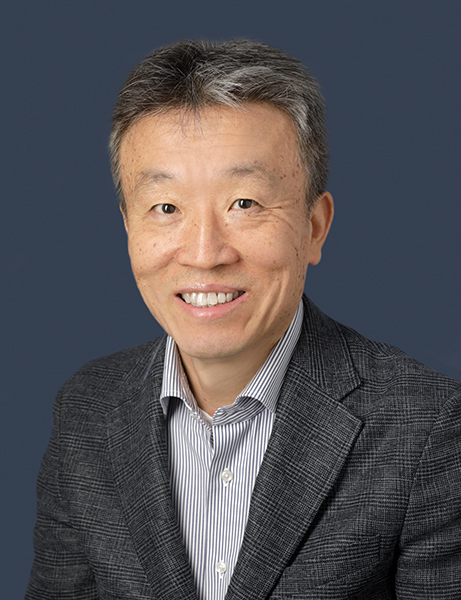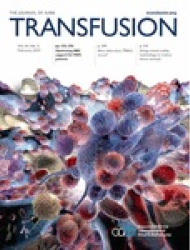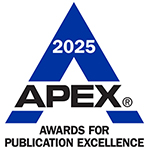
Wanxing Cui, MD, PhD, CABP(H), is director of the Cell Therapy Manufacturing Facility at MedStar Georgetown University Hospital, overseeing FDA-registered, cGMP-compliant operations with AABB, CAP, and FACT accreditations. His journey began as a surgeon in China before earning his PhD in molecular medicine from Kyoto University, Japan, focusing on bioartificial pancreas development.
With more than 27 years of expertise in pancreatic islet transplantation, Cui has authored more than 70 peer-reviewed publications and holds numerous biotechnological patents. He actively contributes to advancing cell therapy standards as a member of the AABB Cellular Therapies Section Coordinating Committee, serving as both an AABB assessor and FACT inspector.
Cui's leadership extends to key professional organizations, including the International Society for Cell & Gene Therapy (ISCT) iPSC Joint and Lab Practice Committees, the International Pancreas and Islet Transplantation Association (IPITA) Advocacy Committee, and as co-chair of the NMDP Cell Therapy Lab Alliance since March 2025. He remains committed to mentoring the next generation through ISCT's Professional Education Program and AABB's Early-Stage Professionals program.
AABB NEWS: How did you become interested in transfusion medicine in general and, more specifically, cell therapy and transplantation?
Cui: My journey into cell therapy began during my general surgery practice in China, where I witnessed firsthand the limitations of conventional treatments for patients with organ failure. The transition from practicing surgery to pursuing research was driven by a desire to develop more definitive solutions. During my PhD at Kyoto University, I became fascinated by the potential of cellular therapies to replace, rather than merely treat, diseased organs. This led me to focus on pancreatic islet transplantation—a field that perfectly combines the precision of cellular manufacturing with the life-changing potential of transplantation medicine. As I progressed in cell therapy, I recognized that successful cellular products require the same rigorous manufacturing standards, quality systems and regulatory compliance that govern other therapeutic biologics.
AABB NEWS: What inspired your initial interest in developing a bioartificial pancreas during your PhD, and how did that shape the trajectory of your career?
Cui: As a surgeon working with patients with diabetes, I saw the devastating complications of this disease and the limitations of insulin therapy. The concept of a bioartificial pancreas represented the ultimate solution—restoring physiologic glucose control through living, functioning cells. This work taught me that successful cell therapy requires not just scientific innovation, but also rigorous manufacturing standards, quality systems and regulatory compliance. It shaped my understanding that the bridge between laboratory discovery and patient benefit lies in robust, reproducible manufacturing processes—which became the foundation of my career focus.
AABB NEWS: What current technologies and cutting-edge tools do you believe will most impact the future of cell therapy?
Cui: Several technologies are converging to revolutionize our field: automated cell processing systems that reduce human variability and contamination risk; advanced cryopreservation techniques that maintain cell viability and function; real-time monitoring systems for critical quality attributes; and closed-system bioreactors for scalable expansion. Perhaps most importantly, we're seeing the integration of digital systems that enable real-time data capture, trending analysis and predictive maintenance—all critical for maintaining the stringent quality standards required for patient safety.
“AI will be transformative across the entire cell therapy lifecycle.”
AABB NEWS: How do you see AI transforming the landscape of cell therapy in the lab and clinical settings, and what role will it play in improving patient outcomes
Cui: AI will be transformative across the entire cell therapy lifecycle. In manufacturing, AI can optimize processing protocols, predict equipment failures before they occur, and identify subtle quality trends that human analysis might miss. For patient care, AI can help match optimal cell products to individual patients, predict transplant success rates and monitor posttransplant outcomes. However, successful AI implementation requires careful validation, explainable algorithms and robust data integrity systems that comply with 21 CFR Part 11 and other regulatory requirements.
AABB NEWS: What is your proudest accomplishment to date, and what’s the next milestone for you?
Cui: My proudest accomplishment is building our cGMP-compliant facility from the ground up—achieving simultaneous AABB, CAP and FACT accreditations while maintaining FDA registration. This represents not just regulatory compliance, but the creation of a comprehensive quality management system that ensures every cell product meets the highest standards. My next milestone is advancing the digital transformation of cell therapy manufacturing through AI integration while mentoring the next generation of cell therapy professionals.
AABB NEWS: How has mentorship impacted your professional journey, and how do you approach mentoring others?
Cui: Throughout my career, mentors helped me navigate the complex intersection of clinical practice, research and regulatory compliance. They taught me that technical excellence must be paired with leadership skills and regulatory acumen. In mentoring others, I emphasize the importance of understanding both the scientific principles and the quality systems that ensure patient safety. I encourage mentees to think beyond their immediate responsibilities and consider how their work impacts the entire patient care continuum.
AABB NEWS: What attracted you to become an AABB assessor within the CTSCC? What is your favorite aspect of the assessor program?
Cui: Becoming an AABB assessor allows me to contribute to elevating standards across the entire cellular therapy community. My favorite aspect is the collaborative nature of assessments—working with facilities to identify opportunities for improvement rather than simply auditing compliance. Each assessment teaches me something new about best practices and innovative solutions that I can bring back to my own facility. It's incredibly rewarding to help facilities achieve accreditation and know that this directly impacts patient safety and care quality.
AABB NEWS: What emerging areas of cell therapy or transplantation are you most excited about right now?
Cui: I'm particularly excited about the convergence of stem cell biology with tissue engineering, especially for creating more complex, vascularized tissues. CAR T-cell therapy continues to evolve with improved safety profiles and expanded applications. Additionally, the development of universal donor cells through genetic modification could address supply limitations that currently constrain many cellular therapies. The integration of AI and automation is also creating opportunities for more personalized, precise cellular interventions.
AABB NEWS: What’s your superpower?
Cui: My superpower is the ability to translate complex regulatory requirements into practical, implementable quality systems. Having worked across multiple regulatory frameworks—FDA, AABB, CAP, FACT—I can help teams understand not just what they need to do, but why it matters for patient safety. This bridge between regulatory science and operational excellence has been crucial in building successful, compliant cell therapy programs.
AABB NEWS: Tell us about the last book that inspired you...
Cui: Rather than a traditional book, I follow the rapidly evolving AI research through weekly publications in Nature Machine Intelligence and specialized podcasts like "AI in Healthcare." The pace of advancement is remarkable—breakthroughs in computer vision for automated cell analysis emerge weekly, with implementation studies following within days.
What particularly inspires me are developments in explainable AI algorithms that address FDA requirements for transparent decision-making in cGMP environments. Recent publications on validation frameworks for AI models compliant with 21 CFR Part 11 represent the transition from theoretical research to practical regulatory implementation.
A recent “Machine Learning in Manufacturing” podcast episode on digital twins for bioreactors exemplifies this rapid evolution—within days, we were evaluating pilot applications for our facility. The accelerating convergence of AI research with regulatory science means new guidance documents and validation approaches appear weekly, requiring continuous learning and strategic adaptation.
This daily evolution challenges us to balance innovation adoption with rigorous validation standards, ensuring we leverage AI's potential while maintaining the quality systems our patients depend on.
PREVIOUS STORY
AABB Foundation Congratulates Recipients of 2025 GrantsBACK TO ISSUE
July 2025
Transfusion is AABB’s scholarly, peer-reviewed monthly journal, publishing the latest on technological advances, clinical research and controversial issues related to transfusion medicine, blood banking, biotherapies and tissue transplantation. Access of Transfusion is free to all AABB members.
Learn More About Transfusion Journal
Keep abreast of what's happening in the field of biotherapies with CellSource - AABB's monthly update on the latest biotherapies news.
To submit news about the blood and biotherapies field to AABB, please email news@aabb.org.
President
Meghan Delaney, DO, MPH
Chief Executive Officer
Debra Ben Avram, FASAE, CAE
Chief Communications and Engagement Officer
Julia Zimmerman
Director of Marketing and Communications
Jay Lewis, MPH
Managing Editor
Kendra Y. Mims, MFA
Senior Communications Manager
Drew Case
AABB News
(ISSN 1523939X) is published monthly, except for the combined November/December issue for the members of AABB; 4550 Montgomery Avenue; Suite 700 North Tower; Bethesda, MD 20814.
AABB is an international, not-for-profit association representing individuals and institutions involved in transfusion medicine, cellular therapies and patient blood management. The association is committed to improving health by developing and delivering standards, accreditation and educational programs that focus on optimizing patient and donor care and safety.
+1.301.907.6977
Email: news@aabb.org
Website: www.aabb.org
Copyright 2025 by AABB.
Views and opinions expressed in AABB News are not necessarily endorsed by AABB unless expressly stated.
Notice to Copiers: Reproduction in whole or part is strictly prohibited unless written permission has been granted by the publisher. AABB members need not obtain prior permission if proper credit is given.
